Why is the cargobike industry dominated by men?
Also, how many kids can you fit in a cargobike?
Hello everyone,
Welcome to Issue #14 of Cargobike Culture!
This week we’re looking at some reasons the cargobiking delivery industry is predominantly male, how many kids can you carry in one bakfiets and whether Cargobike Culture should still be on Twitter.
I’ve also opened comments on the newsletter which you can find at the bottom of the webpage. If you’ve got thoughts on this week’s issue, please share below. We’re a friendly group and I’ll have my moderator hat on just incase some isn’t.
Why is there a lack of women in the cargobiking delivery industry
Last month I attended the 2023 Cargobiking Summit in London. It’s a meeting place for the great and the good of the UK’s cargobike operating companies. And if you looked around the room, as I did, there were two things you’d notice about the attendees;
They’re mostly male
They’re mostly white*
The cycling industry in general has a problem with diversity, and so does the freight industry. So it’s no surprise that the cargobike sector does too.
The one talk I saw at the London Cargobike Summit that tackled the issue head on was by Charlie Couve, a Research Associate at the University of Westminster. He’d been part of a team who’d conducted a study into the experiences of those involved in London’s cargobike delivery industry, including the riders.
The report highlights numerous issues and challenges faced by riders, and the companies which employ them. Many of these issues are centred around the often negative experiences which female and non-binary riders shared. And it’s these experiences which might help us understand why this part of the cargobiking industry is dominated by men.
It’s men all the way down
All the managers the researchers spoke to were men, and all the riders they spoke to had male managers. This systemic male-ness impacts the experience for female and non-binary riders from day one.
Non-male riders told the team about the limitations of training they received, and how the training didn’t take their needs into account. The training was planned, and delivered by men. And without taking care to include the experiences and learnings from women and non-binary cargobike riders, the training misses important information they might need.
For instance, a lot of being a cargobike delivery rider is solo work, which can equate to feeling vulnerable. Every female and non-binary rider the team spoke to could recall experiences of verbal and/or physical abuse they’d received whilst riding. The research team also heard that male management don’t empathise with the fear and challenges of being a non-male cargobike rider.
The researchers also heard about how some cargobike delivery companies can become hyper-masculine work environments, with a heavy after-work drinking culture and obligatory hungover early morning shifts the next day.
Fixing things
All the cargobike delivery companies the researchers spoke to knew that (the lack of) diversity was an issue, but universally had no clear ideas how to fix it.
You’ll notice that none of the issues above were about the actual cargobikes themselves. Whilst there were a few points in the research about how a cargobike can draw unwanted attention to riders, the good news is cargobikes could actually be a leveller for women in the freight industry as a whole.
Speaking at 2022’s International Cargobike Festival in Amsterdam, Sandra Rothbard, freight consultant said, (and I’ll paraphrase from my scratchy notes) ‘We don’t even design cities for women, let alone freight. Freight vehicles like trucks often don’t work for small women. Cargobikes can level the playing field with electric motors, and tend to carry smaller parcels’. You can hear more from Sandra in this podcast where she talks about these and other issues.
I also met Natalia Tomiyama, co-founder of NÜWIEL at the Amsterdam event. Her company builds self-powered electric trailers which you can effortlessly tow behind any normal bike.
And when you arrive at the destination area, you just unhook it from your bike, and pull it along behind you. The magic with the NÜWIEL trailer is the custom built sensor in the towing arm. I tried it out at the conference and it’s amazingly intuitive, you can pull it along with one finger and it’s sensitive enough to keep up and slow down as needed.
Cargobike improvements and new tech means that small people who would traditionally be overlooked by the freight industry, are now viable employees.
So we have the freight industry, which has historically overlooked women and non-binary people as workers. And we have the cycling industry which is dominated by men. And we have the cargobike industry which straddles both worlds, and on every metric, is about to become a huge part of the logistics systems for cities across the world. What’s going to happen?
The cargobike delivery industry has the technology available to enable inclusive working conditions, but that doesn’t seem to be the biggest barrier. I don’t think it’s a technology or equipment issue, cargobikes solve a lot of those.
The problems which the cargobike industry need to tackle are the systemic, structural issues which women and non-binary people face everyday. The report highlights many of them, and we need more research like this so the voices of marginalised groups are heard. And equally as important, companies need to start reading them and enacting changes.
A huge section of the report talks about how difficult cargobike delivery companies are finding recruitment at the moment. Maybe that might be a good motivator to start changing things and to make sure the cargobike industry doesn’t fail women and non-binary people like the rest of the freight industry has.
—-
*What the report didn’t study, because of time constraints the team were under, was reasons for the ethnic disparity in the cargobike delivery industry. The University of Westminster report highlights the need for more dedicated research into this area, and I totally agree. There’s a story to unravel about why the majority of gig economy bicycle riders in London are south asian, but their cargobike courier colleagues, who have the more secure, and better paid jobs, are mostly white.
To tweet, or not to tweet
I, like many of you, have a difficult relationship with Twitter. Mine has become even more difficult after the bird site’s man-child CEO decided to block Substack links last week. (I’ve also got a difficult relationship with Substack, this very platform, whose approach to moderation leaves a lot to be desired).
On the one hand, I want nothing to do with Twitter or him. On the other, there’s a really lovely cargobike community over there and I learn a lot. Like this tweet from Martin Wegmann about how he saw a cargobike on the artic island of Svalbard.
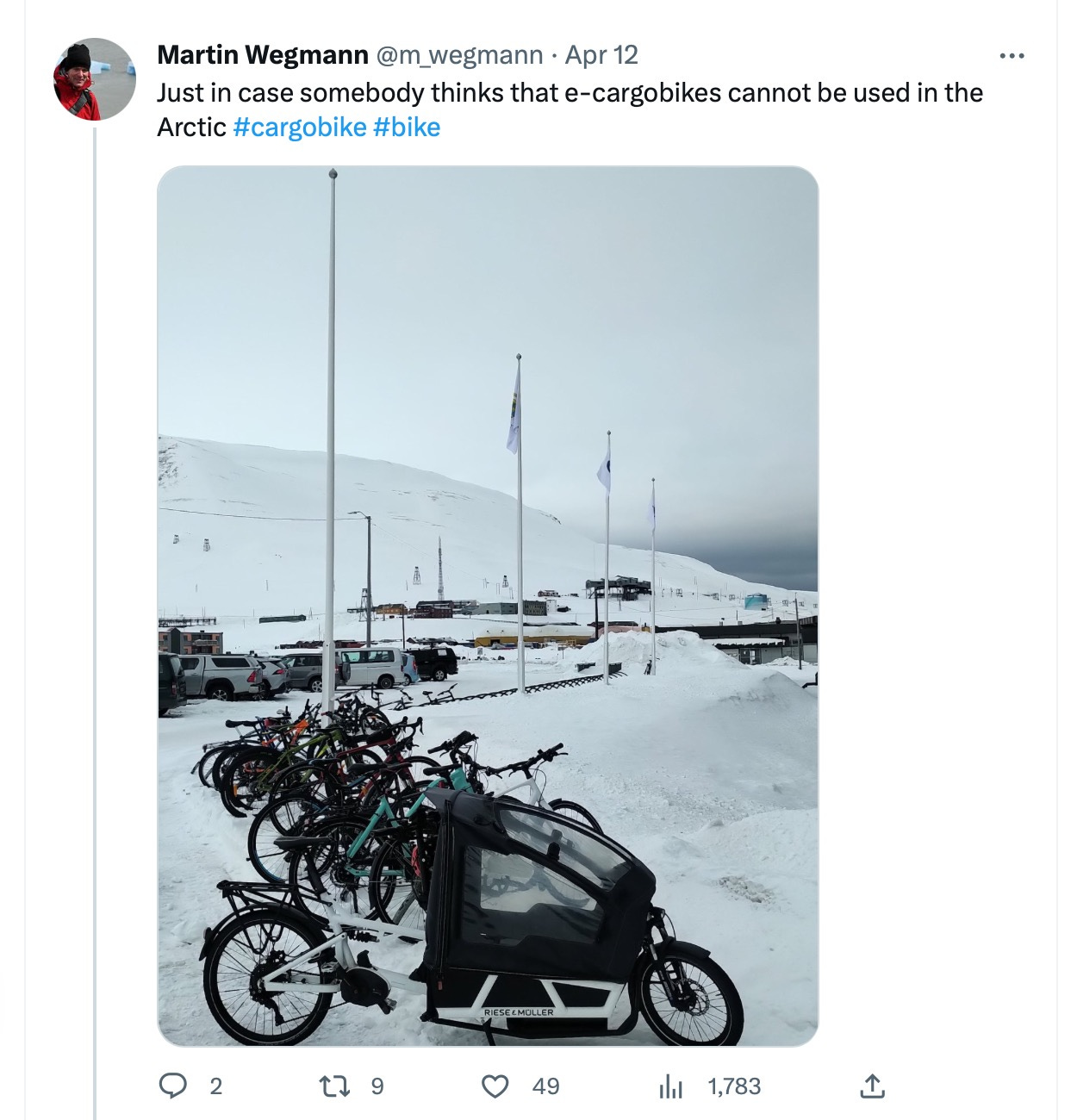
Or this adorable video of Sjoerd and his daughter biking along the beach in their Urban Arrow.
This newsletter has also benefited a lot from Twitter and many of you reading this heard about from that site. So I’m not sure what to do right now. I spoke to one fellow creator who accepts she has to use Twitter for work-work, but avoids it personally. So maybe that’s the option. What do you think? Comments are open below.
Other links of interest
Portland cargobikes
I came across this article by Shannon Johnson who writes a weekly column about her family cargobike adventures. She’s two years into her cargobiking journey and is clearly loving it.
‘This bike has changed my life. I feel closer to my neighborhood and community. I have something I am looking forward to every day: a bike ride with my children’
In her article, she linked to another piece from 2012 which is about Emily Finch. I can’t believe I’ve never heard of her before because she’s an absoulte cargobiking hero.
She was regularly transporting her seven (!) kiddos around by bakfiets. And those looking closely will see that’s a non-electric bike. What a beast! It turns out there was a bit of a media storm at the time, she even took talk show host Ricki Lake for a ride at the end of an episode entitled ‘extreme lifestyles’.
I’d love to know 11 years later if she’s riding around. If anyone knows Emily, let me know!
London cargobikes
The BBC had a nice write up about a new report published by the London Assembly into moving the cities transport to net zero emissions. As you’d expect, it recommends a faster and bigger take up of cargobike usage by businesses.
The report was published by the Economy Commitee which is chaired by Councellor Hina Bokhari, who I met at the cargobike summit in London. She gave an amazing talk on her work on the political side of things and her passion an enthusiasm for cargobikes was infectious.
You can find the report here.
That’s all for this week. Thanks for reading!




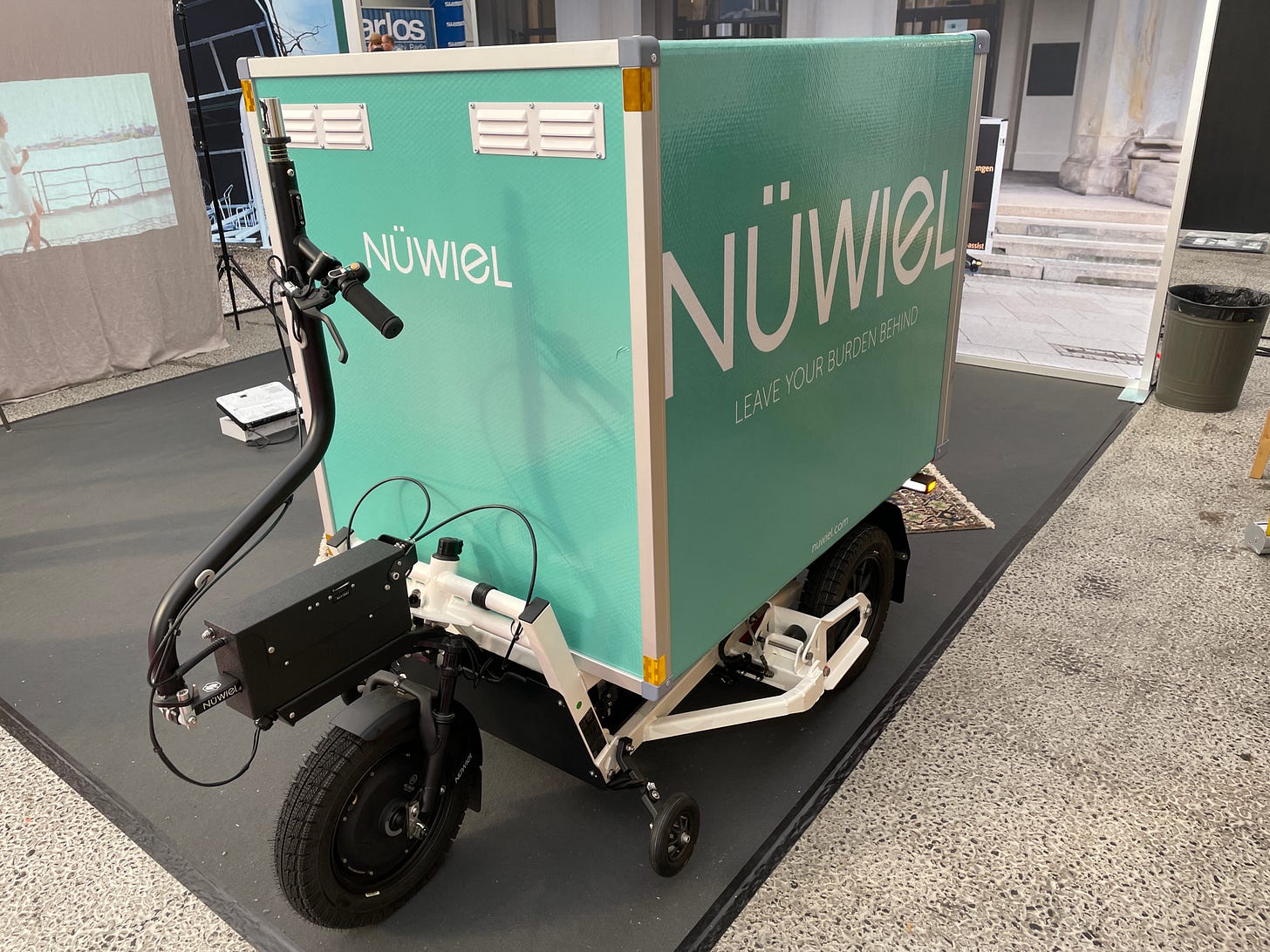
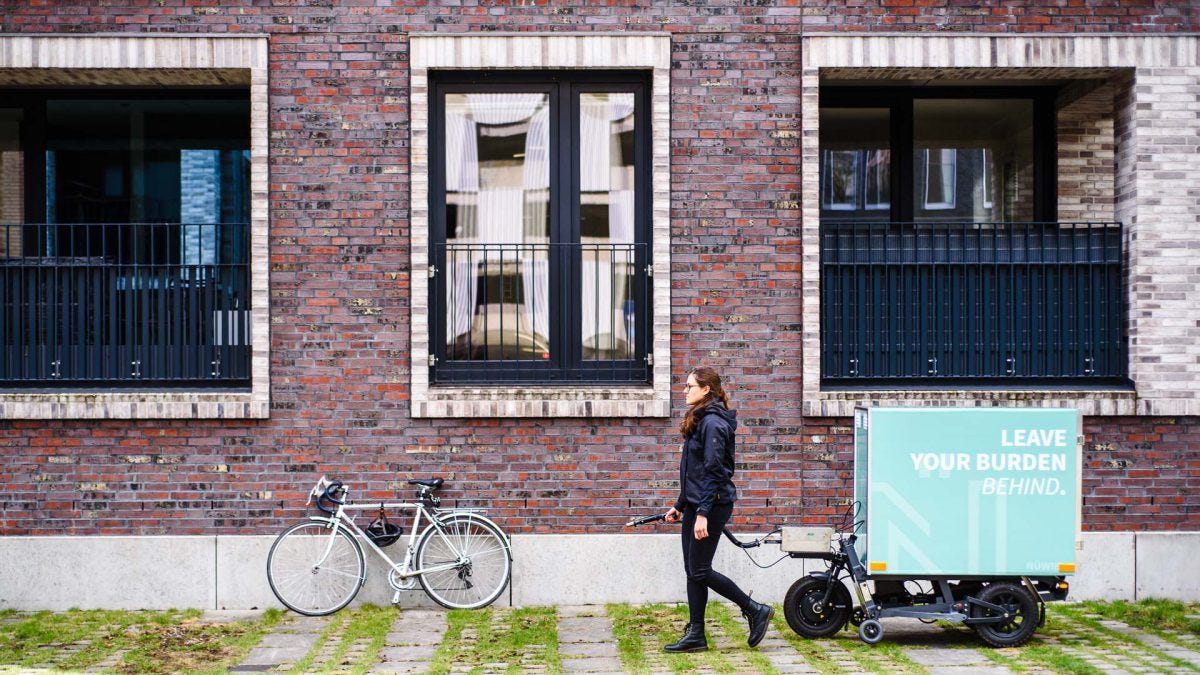
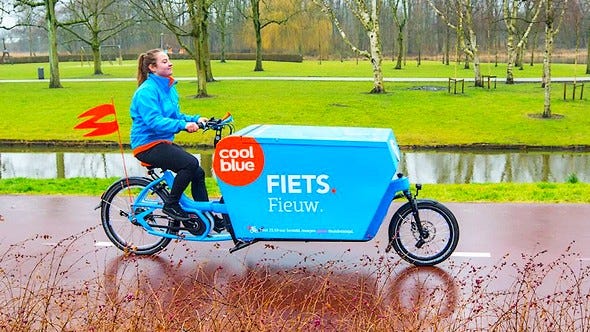

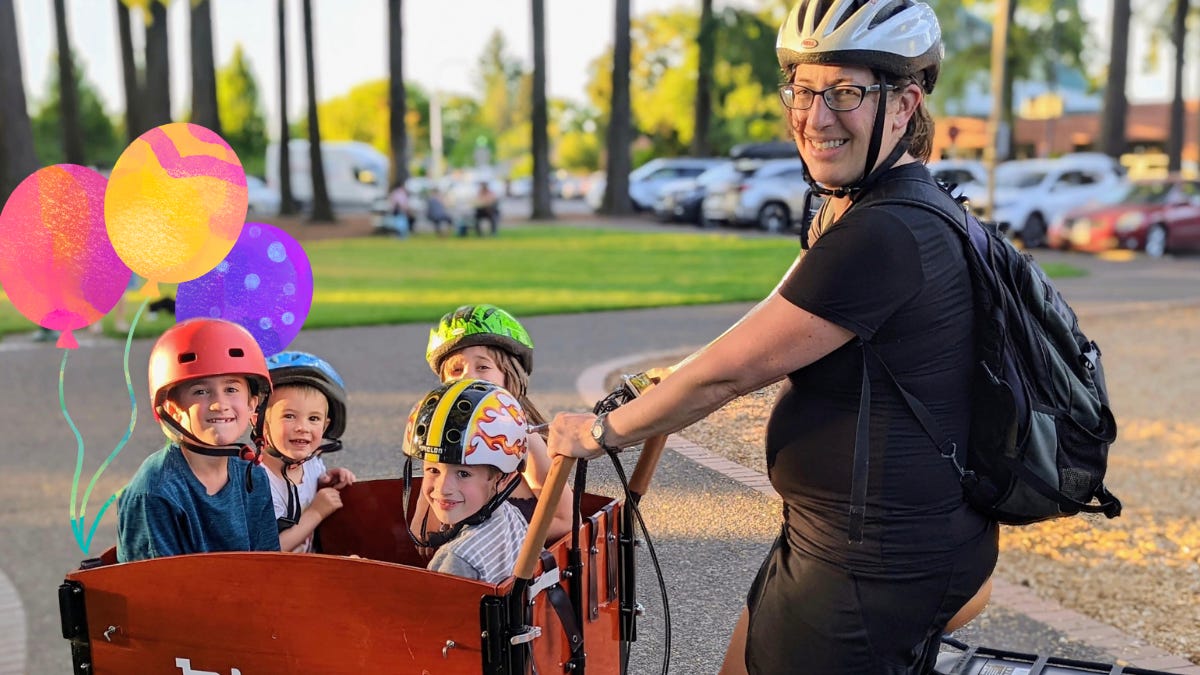
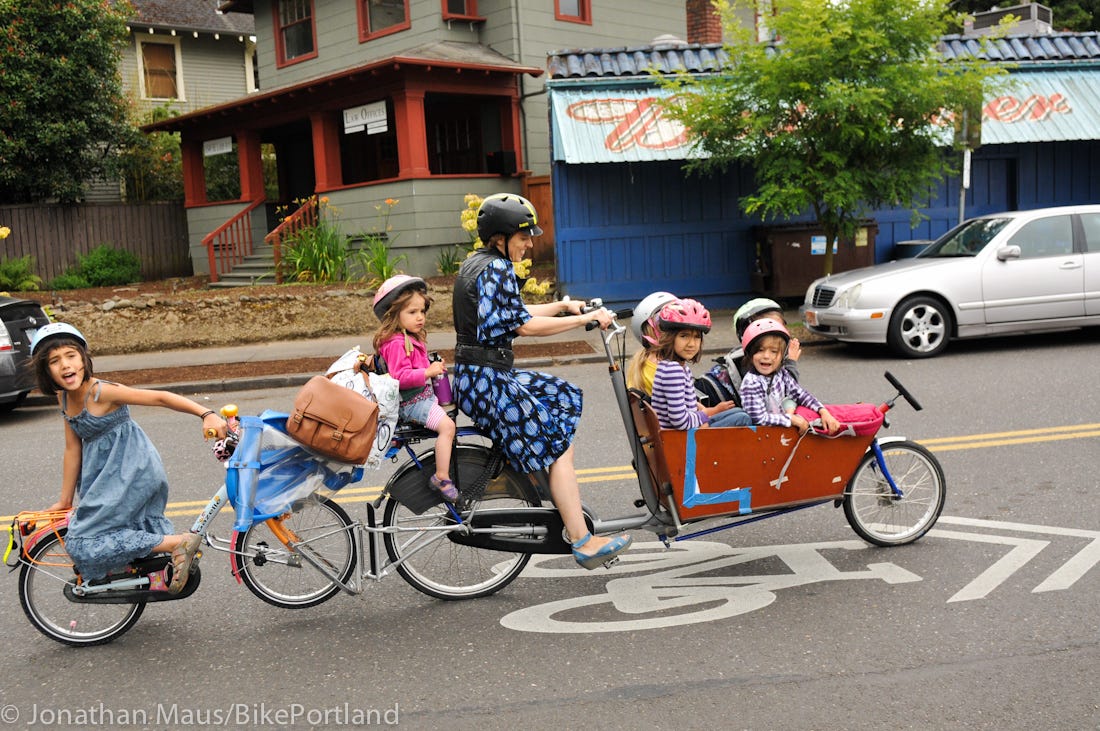
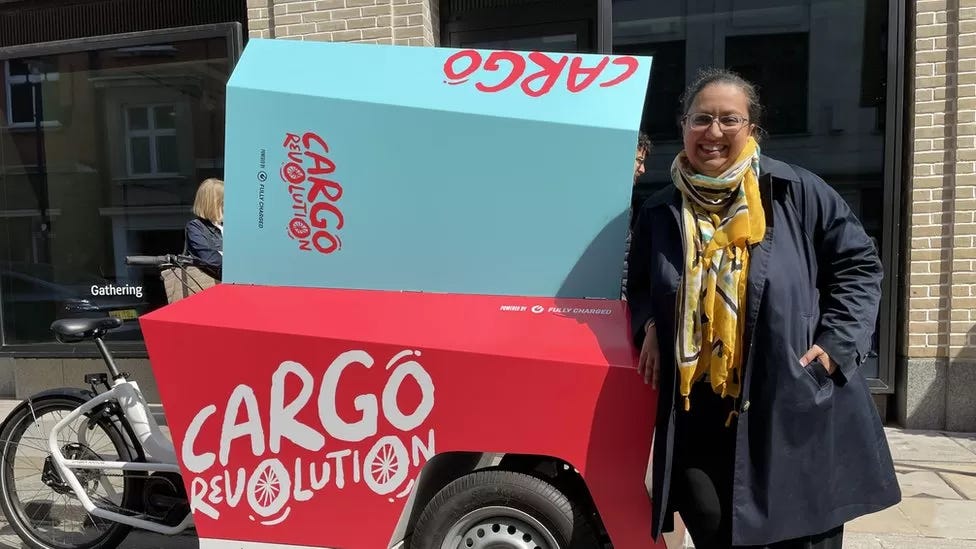
Thanks James for this piece on diversity, it's an important issue and follows the Bicycle Association report which came out on March 8th. In the bike shop I run we have a gender split of 4 women to 5 men, it's not perfect but we've got that far through looking at all aspects of recruitment - words, images, information. Just hoping that more women will turn up is never enough.
When I imagine working as a cargo bike courier the first things I think are 'how, where will I go to the loo?' and 'will I be able to lift heavy weights?'. Explaining how the working day operates, what you will be expected to do and what support you'll have, is step 1 towards attracting more diverse recruits. Whereas just saying 'Cargo Bike Courier wanted' doesn't tell me anything.
I don't think we should get too hung up just yet on the male and pale cargo bike industry. These things evolve and it is evolving already. I too was at Guildhall. The tide is turning and will continue to do so. As for Twitter. A wise judge once said the way to change a bad law is to obey it. The way to change a bad platform is to get in, speak out and change from within. Musk is a a interesting character. But imagine that drive and passion put to good.......